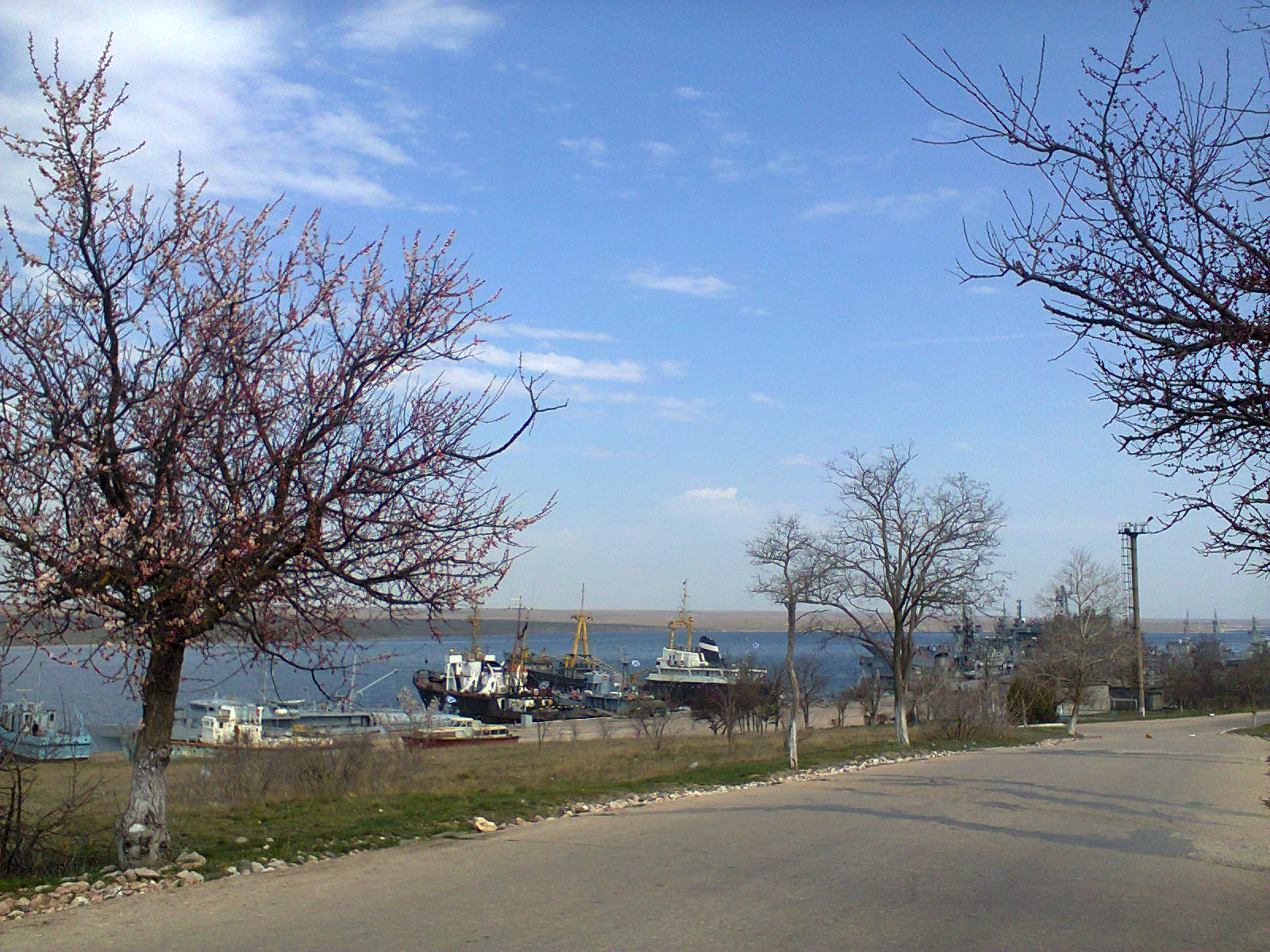“Those who remained serving the invaders had to take two steps forward”, – the story of a former service person from Crimea

At the end of February, the troops without identifying insignia, redeployed from Russia and the Crimean bases of the Russian Black Sea Fleet, began to occupy the Crimean peninsula. After the seizure of government buildings, Russian military began to seize Ukrainian military bases.
On the seventh anniversary of these events, we had a talk with a former service member of the 29th Naval Reconnaissance Unit in the town of Novoozernoye (call-sign “Agutin”), who told our publication about how the seizure of this military base proceeded and much more.
Also, he shared with us a list of all servicemen who, after the departure off the military base, remained in Crimea.
About how the seizure of the military base by the Russian troops took place, about the traitor commander, about the weapons seized by the Russians, which later appeared in Donbass, and about many other things told our publication the former service member of this base with a call-sign “Agutin”:
Briefly about the military base.
- The Military Base A3343, better known as the 29th Naval Reconnaissance Unit, was formed on June 22, 2012 in Crimea, the town of Novoozernoye of Yevpatoria District was chosen for the home station. This was a Sabotage Unit. Zakhvatikhata Nikolai Konstantinovich, who later defected to the side of the Russian invaders, commanded the base.
I was involved to serve there in 2012. People from different regions of our State were recruited into this base from other military bases. Half of the military base consisted of Crimeans and the other half were people from other regions. Totally, 56 people served in this military base.
The times of “Maidan”.
- In November, 2013, when the Maidan began, we were assigned to Perevalnoye for the trainings, while here there were already the servicemen from different parts of Ukraine, who were sent to Crimea for 15 days of training and performing combat actions, namely, for searching the militants. Then, the information was given to us that, supposedly, the Muslims were settling in Crimea and forming their own rebel groups. During the last 5 days of the trainings, we had been searching for traces of the supposed militants in the mountains of Crimea. 5 days after, the mission was assigned to get on the train and, together with the marines, go to the Maidan. We located near Kiev and, after a couple of days, received an order and left back to Crimea.
The seizure of the military base.
- At the end of February, 2014, some talks began about Russia, the elections and that sort of things. At that time I was in Sevastopol for service reasons and witnessed how Russian helicopters were already flying over Sevastopol. We were in Sevastopol to guard the headquarters of the Navy. My commander, Zakhvatikhata Nikolai Konstantinovich, directly commanded the defense of the fleet headquarters. Before the combat assault on the headquarters in Sevastopol began, our people, who were directly on the territory of the headquarters, managed to bury their weapons, leave the territory in various ways and return to their military base in the town of Novoozernoye.
When I arrived there, the Russians were not yet in our base. After the arriving at the base, I had to leave for home to another region of Ukraine for business. At that time, the so-called “Crimea Self-defense” had already been formed. Then, in my head I had thoughts that there were already checkpoints everywhere, and there would probably be a document check, and so, possibly, I would be removed from the route and my whole journey would end with a trip to the basement. I was leaving without a passport, yet I had my military service card, where it was noted: “Reconnaissance Officer”.
At the checkpoint, near Dzhankoy, a man in “Berkut”(*) uniform with a machine gun entered the bus and began to check the documents of all passengers. Well, I took out my military service card, he looked at it and gave it back to me; apparently, he did not go into details. I was at home for about a week, and after that my commander called me and said that our military base had been seized. Well, I decided to go anyway and get myself to the military base. Already when I was approaching Yevpatoria, the commander called me and told that the Russians were only at the checkpoints, he said, “Come and show them your military service card, and they will let you into the territory of the base”. When I arrived, in fact, the Russians were already strolling around the base and the Russian flag was hanging on the territory of the checkpoint.
*(“Berkut" - On February 28, 2014, the Supreme Council of the Autonomous Republic of Crimea created a special unit for the protection of the public order called “Berkut”, which was exclusively subordinated to the Authorities of the Autonomous Republic of Crimea. The Ministry of Foreign Affairs of the Russian Federation assigned the Russian Consulate General in Simferopol to start the issue of Russian passports to the soldiers of “Berkut” detachment. The first passports were issued on March 1, 2014)
A couple of days later, we were all lined in formation and asked the question “Who is leaving and who is staying?” Those who remained serving the invaders had to take two steps forward. About 25 people left our base. Well, we were told: “You may go”. We could do whatever we wanted, yet we had to be in line formation every morning. Over a period of two weeks we were leaving to Yevpatoria to send our things to the post office, no one controlled us, yet every morning we gathered at the line-up formation.
Our former commander, Nikolai Zakhvatikhata, gave the Russians all the radio stations that we had. However, we managed to destroy all the control consoles, where all the information was, before that. They actually took a scrap pile. Also, my colleague destroyed all the encryption equipment that we had, so that the Russians could not take it.
Before leaving, we were all gathered in the gym. I was sitting at the gallery then, turned on the voice recorder on my telephone and made an audio recording of the speech of Nikolai Zakhvatikhata, who then was persuading to stay and serve the Russian Army; he was talking about a significant increase in salaries, about the status of the combat veteran. Well, he tried to seduce with these honeypots.
As for Zakhvatikhata, he was tough person. He ran a marathon in Washington, he was twice sent to the courses in the United States and also he was one of the few who received a “green beret” in Great Britain from Queen Elizabeth II. And finally, he said he is a patriot of his country and remains here. It’s not quite clear what he meant, yet he stayed there.
The departure to the mainland.
- On March 27, 2014, we were already leaving Crimea for the mainland Ukraine. In fact, there were 21 people who left, and 12 of us were contract soldiers, the other 9 were officers. About 32 people stayed there. After leaving, we arrived in the Nikolayev Region, in the town of Ochakov, where, in fact, we continued our military service. Every month, during 2014-2015, we had been writing the reports with a request to send us to Donbass of our own free will. Subsequently, we went there two times.
In 2015, the information came to us from the intelligence that the weapon, which we had in service in Crimea, was detected in Donbass. It turns out that the weapons, which were seized from our base in Crimea, were firing upon us in Donbass.
